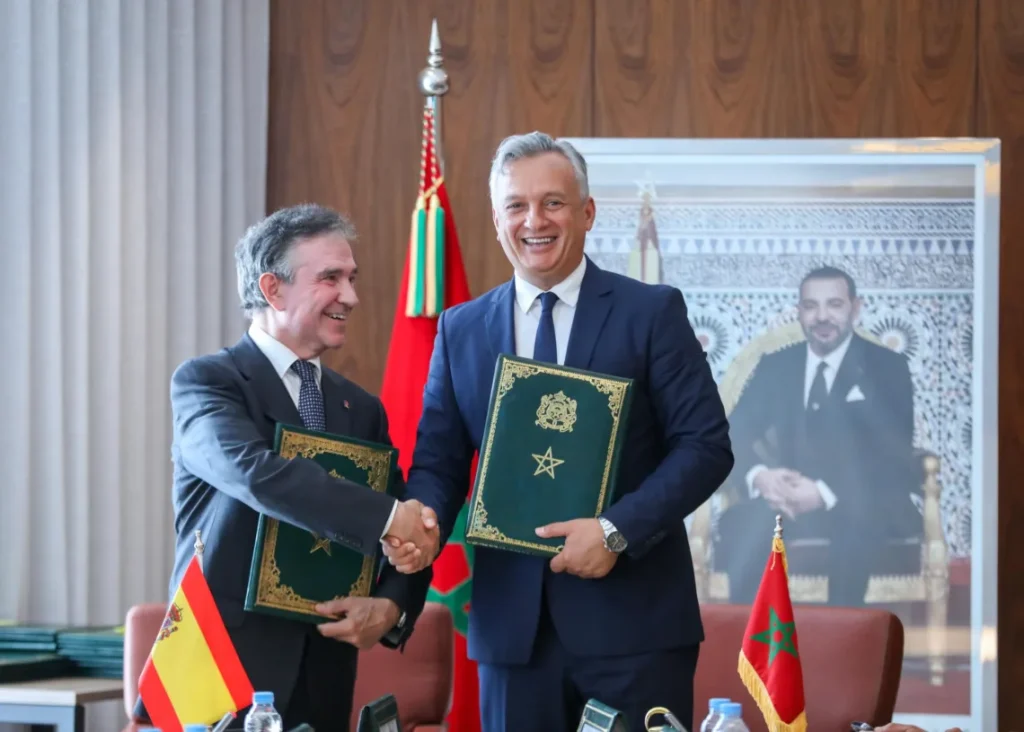Morocco has taken a significant step toward deepening its economic partnership with Spain by signing four major investment agreements with leading Catalan companies. The deals, valued at MAD 500 million (approximately $50 million), are expected to generate over 700 direct employment opportunities in key industrial zones across Tangier, Tetouan, and Kenitra.
Catalan Investment Expands into Key Moroccan Cities
These new projects will span a diverse range of sectors, including automotive manufacturing, industrial waste recovery, packaging, and construction materials—areas where Morocco is positioning itself as a regional leader. The agreements not only reflect confidence in Morocco’s economic framework but also demonstrate the country’s capacity to turn strategic partnerships into concrete development initiatives.
The selected cities—Tangier, Tetouan, and Kenitra—are already known for their industrial dynamism, and this latest influx of foreign investment is poised to further bolster their economic roles.
High-Level Ceremony Underscores Strategic Intent
A formal signing ceremony was held in Rabat, led by Morocco’s Deputy Minister for Investment, Karim Zidane, and Josep Sánchez Llibre, President of Foment del Treball, Catalonia’s largest and oldest business organization. The presence of these senior figures signaled the importance of the agreement for both sides.
Zidane highlighted the alignment of these investment projects with the vision of King Mohammed VI, who has long emphasized the need for Morocco to become a prominent industrial hub in Africa and the Mediterranean. He credited recent structural reforms for creating a more favorable environment for foreign investors. Among the key reforms are the digitization of investment procedures, streamlined administrative processes, and the empowerment of Regional Investment Centers (CRIs).
“These improvements are not just policy shifts—they are practical changes that ease the way for international investors to do business in Morocco,” Zidane stated.
Catalan Delegation Outlines Future Investment Plans
Josep Sánchez Llibre praised the Moroccan government’s facilitation efforts and signaled the beginning of a long-term economic engagement. He revealed that Catalonia sees Morocco as a critical partner for its international expansion.
“These four projects are only the start. We plan to return within a year with a new delegation of around twenty Catalan companies eager to explore further opportunities,” Sánchez Llibre said.
His comments suggest that the relationship is not limited to isolated deals but is evolving into a sustained economic collaboration between Catalonia and Morocco.
Morocco and Spain Cement Economic Alliance
Spanish Ambassador to Rabat Enrique Ojeda Vila was also present at the event and emphasized the deep and multifaceted ties between Morocco and Spain. He noted that both countries are each other’s primary economic partners, with extensive historical, geographical, and strategic linkages that form the backbone of their current collaboration.
Adil Rais, co-president of the Morocco-Spain Economic Council (CEMAES), pointed out that the agreements reflect a shared commitment to building a robust investment corridor. “Our goal is clear: to position Spain as Morocco’s top foreign investor,” Rais said.
Part of Broader ‘Morocco Now’ Strategy
This latest investment round builds upon a series of strategic efforts under Morocco’s “Morocco Now” initiative, which seeks to elevate the country’s profile as a prime investment destination. Promotional roadshows were previously held in Barcelona in January 2024 and in Madrid in April 2025, followed by an exploratory visit from Catalan companies in June 2024.
The continuity of these engagements illustrates a deliberate, long-term strategy to attract foreign capital and turn diplomatic ties into mutually beneficial economic ventures. These latest agreements serve as a powerful example of how Morocco is leveraging international cooperation to generate local impact.
By securing investment across multiple industries and regions, Morocco is not only reinforcing its economic foundations but also advancing its broader vision of regional leadership in industrial development.



